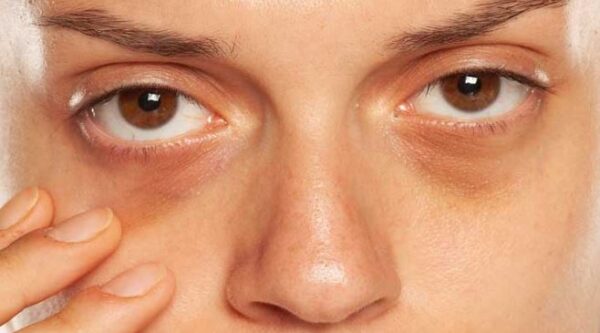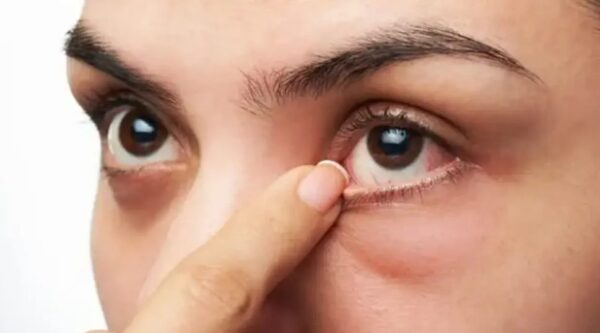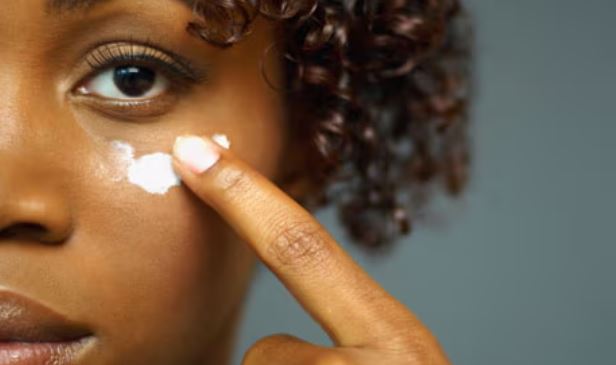Lifestyle
5 health problems that cause dark circles around eyes

Dark circles under the eyes are a common concern for many people, often making us look tired and older than we actually are.
Dermatologists encounter numerous patients seeking solutions to reduce or eliminate these stubborn shadows.
While dark circles can be challenging to treat due to their various causes, there are several effective strategies that can help brighten your under-eye area and restore a more youthful, refreshed appearance.
Health issues that cause dark circles
Before diving into treatments, it’s essential to understand what causes dark circles. There are several factors, including:
1. Allergies: Allergic reactions can lead to inflammation and dilated blood vessels under the eyes, exacerbating dark circles.
2. Genetics: Some people are predisposed to dark circles due to hereditary factors, such as having thinner skin or hyperpigmentation.
3. Dehydration: When the body is dehydrated, the skin can appear dull, making dark circles more noticeable.
4. Lack of Sleep: Fatigue can cause the skin to appear pale, allowing dark tissues and blood vessels beneath the skin to show through more prominently.
5. Aging: As we age, the skin around the eyes becomes thinner, making blood vessels more visible, which can create a darkened appearance. Understanding the underlying cause of your dark circles is the first step toward choosing the most effective treatment.
Healthy diet to treat dark circles
A balanced diet rich in vitamins and minerals can have a positive impact on your skin. Foods high in antioxidants, such as fruits and vegetables, can help protect the skin from damage and improve its overall appearance. Iron-rich foods, like leafy greens and lean meats, can be particularly beneficial if your dark circles are related to iron deficiency. Additionally, reducing salt intake can help minimize under-eye puffiness caused by fluid retention.
General measures to prevent dark circles
One of the most straightforward and effective ways to reduce dark circles is by ensuring you get enough sleep. Aim for 7-9 hours of quality sleep each night.
Additionally, managing stress through activities like meditation, exercise, or yoga can help reduce the appearance of dark circles, as stress can exacerbate the issue by affecting your sleep and overall skin health.
Daily sun protection is crucial to prevent further darkening. Use a broad-spectrum sunscreen with at least SPF 30 and wear sunglasses to protect the delicate skin around your eyes from UV rays.
Dehydration can make dark circles more prominent, so it’s essential to stay hydrated by drinking plenty of water throughout the day. Applying a cool compress or chilled cucumber slices to your eyes can also temporarily reduce puffiness and dark circles by constricting blood vessels.
Professional treatments for dark circles
Incorporating antioxidant-rich products, such as vitamin C serums, can help brighten the skin and reduce pigmentation. Additionally, using a gentle eye cream that contains ingredients like retinol, hyaluronic acid, or peptides can improve skin texture, increase collagen production, and reduce the appearance of fine lines and dark circles over time.
For more stubborn dark circles, professional treatments can offer significant improvements:
Chemical Peels: Light chemical peels can help reduce pigmentation under the eyes, particularly if dark circles are caused by hyperpigmentation.
Laser Therapy: Lasers can target pigmentation and stimulate collagen production, improving the appearance of dark circles over time.
Dermal Fillers: If dark circles are caused by volume loss or thinning skin, dermal fillers like hyaluronic acid can be injected to restore volume and reduce the appearance of hollow eyes.
Microneedling: This treatment can improve skin texture and stimulate collagen production, making the skin under the eyes thicker and reducing the visibility of blood vessels.
These treatments should be performed by a qualified dermatologist who can assess your skin type and determine the most appropriate solution.
The takeaway
Dark circles can be a frustrating cosmetic concern, but with the right approach, they can be managed effectively. A combination of good sleep, sun protection, proper skincare, and professional treatments can significantly reduce their appearance. Remember, it’s essential to identify the underlying cause of your dark circles and tailor your treatment plan accordingly. If you’re unsure of the best approach, consulting with a dermatologist can help you achieve brighter, more youthful-looking eyes.










